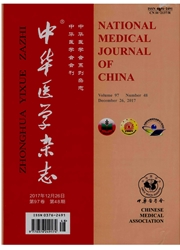

 中文摘要:
中文摘要:
目的研究中国家族性乳腺癌患者中BRCA1/2基因突变的发生率和特性。方法研究对象为来自全国4个乳腺癌医疗中心的115例家族性乳腺癌患者(包括前期研究的35例),应用DHPLC和DNA序列测定技术对这些患者进行BRCA1/2基因全编码区的突变检测。结果在115例患者中,共发现11例BRCA1基因突变和3例BRCA2基因突变,总的突变发生率为12.2%。根据家系中乳腺癌患者个数分层后,突变携带率差异无统计学意义。但是携带BRCA1/2基因突变的家系中先证者和所有乳腺癌患者的平均发病年龄显著早于突变阴性的家系(P〈0.01),同时家系中年轻的乳腺癌患者越多,突变携带率就越高.结论在中国家族性乳腺癌患者中,患者的发病年龄能有效地预测BRCA1/2基因突变的携带率,但是家系中乳腺癌患者个数的预测功能却较差。
 英文摘要:
英文摘要:
Objective To study the BRCA1/2 gene mutation frequency and characteristics in Chinese familial breast cancer patients. Methods Denaturing high-performance liquid chromatography (DHPLC) and following DNA sequencing in BRCA1/2 gene whole coding region and exon-intron splicing sites were performed in the specimens obtained during operation from 115 probands of familial breast cancer from 4 breast cancer centers in China. Results Fourteen cases of gene mutation ( 11 in BRCA1 and 3 in BRCA2) were found in the 115 breast cancer specimens with an overall mutation rate of 12.2%. After stratification with number of breast cancer patients in family, the frequency of mutation did not change significantly. The average age of disease onset of the families carrying BRCA1/2 mutations was significantly younger than that of the families without mutations ( P 〈 0. 01 ), and the higher the number of young patients in family, the higher the mutation rate. Conclusion In Chinese familial breast cancer patients, age of disease-onset is an effective predictive factor of BRCA1/2 mutation, however, the predictive effect of the number of affective relatives in family is not good.
 同期刊论文项目
同期刊论文项目
 同项目期刊论文
同项目期刊论文
 期刊信息
期刊信息
